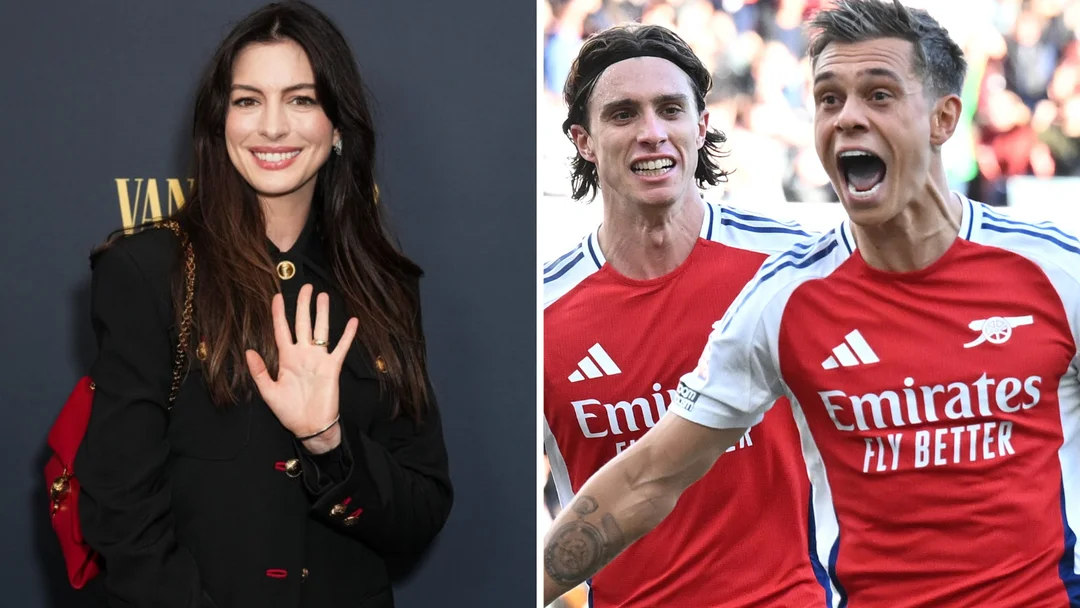
Have Arsenal and PSG Become Football’s Fashion Icons?
In the world of football, the clash between Premier League giants Arsenal and French heavyweights Paris Saint-Germain (PSG) transcends the typical narrative of goals and tactics, plunging into the realm of celebrity culture and fashion. As the two clubs prepare for their upcoming Champions League semi-final, fans are left wondering: have Arsenal and PSG become the ultimate style icons of football?
With a growing list of A-list supporters, including Hollywood superstar Anne Hathaway, pop sensation Dua Lipa, and an array of high-profile athletes, both clubs are keenly aware of the power of celebrity in enhancing their global appeal. Hathaway’s recent display of Arsenal pride, where she sang the club’s anthem after their victory against Real Madrid, has not only generated widespread media attention but also cemented her status as a staunch Gooner.

Hathaway’s journey into the Arsenal fanbase appears to have a deeper history than just recent events, as her enthusiasm for the club has steadily grown over the past year. Her interactions with teammates, including the message from Trossard inviting her to Emirates Stadium, exemplify how intertwined popular culture and football have become.
Correspondingly, PSG, under the careful stewardship of their Qatari owners, has established itself as a cultural icon through strategic celebrity endorsements. From collaborations with the likes of Beyoncé and Travis Scott to cleverly crafted fashion statements, PSG has effectively transformed its branding from a mere football club to a lifestyle brand.

The narrative around celebrity allegiance is further enriched by the presence of dual loyalties. Famed personalities such as Kim Kardashian and Rihanna have been spotted expressing their football affections across both teams, leaving fans questioning whether celebrity support is linked to genuine fandom or merely promotional opportunities.
The stakes are high for both clubs not only in terms of football performance but in the quest for cultural capital. As leagues become increasingly globalised, Arsenal and PSG are competing to captivate an audience that extends beyond traditional football fans.
Interestingly, Arsenal's rise in the celebrity context has been contrasted with PSG's high-end glamour approach. Arsenal, through collaborations with urban brands and local initiatives, has cultivated a genuine connection to North London, prioritising authenticity over mere glitz. Meanwhile, PSG has maintained a firm grip on their fashionable reputation, leveraging their Parisian roots to attract high-profile endorsements.
As Mikel Arteta calls for an electric atmosphere at the Emirates, urging fans to create something historically significant, the importance of building a brand that combines football talent with cultural relevance has never been clearer. Both clubs are keenly aware that attracting celebrity fans is not only about enhancing their image but also about securing their financial future amidst the competitive landscape of European football.
As the clock ticks down to the highly anticipated match, the critical question remains: who will not only secure victory on the pitch but also emerge as the ultimate fashion club in the eyes of fans worldwide?
In conclusion, while loyal matchgoers may prioritise the results on the field, the impact of celebrity culture on commercial success is indisputable. Will Arsenal or PSG redefine football’s fashionable identity? Let us know your thoughts in the comments below.